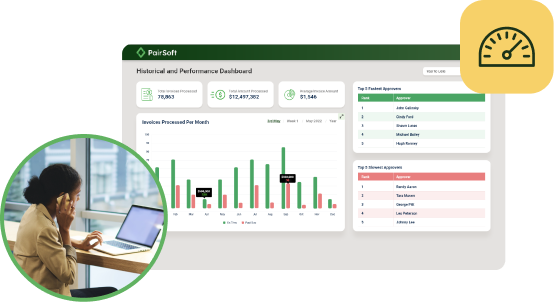As the economy and businesses reopen, travel related expenses will once again represent significant spend for most companies. Benchmarks estimate that total travel expenses are often as high as 12% of a company’s annual budget.
Not only do travel expenses consume a big chunk of a company’s budget, travel is one of the most difficult expense categories to control, making it ripe for wasteful spending. A travel management solution can bring travel spend under your direct control, saving time, money, and ensuring compliance—and now is an excellent time to bring such a solution on board.
Here, we look at why travel spend is difficult to control and explore seven reasons your organization needs a travel management solution to track, manage, and optimize your organization’s travel expenses.
So what makes corporate travel spend so difficult to control?
International consulting firm, Accenture, laid out three main reasons why corporate travel spend is so difficult to control.
- It’s fragmented, with hundreds (or even thousands) of travelers making purchase decisions each year.
- It requires expertise in multiple areas. Each travel category—airline tickets, cars, hotels, and meetings—is a very different market, requiring specific knowledge to get the best deals.
- It’s personal, since individual travelers have strong preferences about where they sleep and which rewards programs they participate in, or safety issues that impact their travel purchase decisions.
Here are seven travel cost drivers that a robust travel management solution can help you bring travel spend under your control.
1. Put the lid on rogue bookings
When employees book their own travel, they may not even be aware that corporate discounts are available. From a financial standpoint, unaccounted-for travel bookings mean your company won’t be able to take advantage of its full buying power, causing you to pay more than you need to.
More importantly, these rogue bookings could impair your company’s ability to track your travelers and offer assistance in case of an emergency.
A travel management solution enforces your organization’s travel-related policies, helps employees find the best available deals, and ensures you’re able to accurately track, approve, and reimburse associated expenses.
2. Know where your travelers are
The current crisis and associated travel restrictions reinforced the importance of knowing where in the world your workforce is at any given time. Similarly, natural disasters and political unrest can cause unexpected travel disruptions, making it essential for your company to easily determine who is traveling and where.
A travel management solution makes it simple for you to determine which employees are traveling in which locations, allowing you to monitor their circumstances, provide updates, and offer any needed assistance.
3. Keep track of credits
Recently, as travel came to a sudden halt and companies cancelled travel, refunds, travel credits, unused tickets, and reimbursements stacked up. Tracking those transactions is vital, as they could easily represent tens of thousands of dollars.
A travel management solution provides the capabilities to track these types of transactions so they are not wasted.
4. Give employees power and choice (within limits)
Data shows that 59% of US business travelers book their travel themselves. For millennials, the rate is even higher—a full 69% report that they book travel themselves.
Allowing employees to book their own travel itinerary is a great idea as it empowers them and can save you time. Giving employees control over the process makes sense as long as they comply with the travel policies your organization has set.
Travel management software empowers employees with the tools they need to research, book, and track their own business travel while ensuring your organization’s travel policies are enforced.
5. Save time and money
There is ample potential throughout the travel cycle to lose time and money—all of which can be mitigated by a travel management solution.
- Before the trip: Are your employees spending a lot of time searching for and booking flights?
- During the trip: Are the flights chosen the most expedient? Are your employees picking the most conveniently-located hotels?
- After the trip: Are your employees spending hours gathering receipts, entering expense reports, and routing the reports for approval and reimbursement?
6. Trip data all in one place
It’s common for smaller (and even many larger) companies to track employee travel in spreadsheets, with associated paper files, emails, and vendor invoices. Details like flight numbers, hotel reservations, costs, and payment data may be kept in multiple, disconnected locations.
This makes it nearly impossible to have real-time visibility into your company’s corporate travel, increasing the chances of errors, overpayments, and processing delays.
One of the single biggest benefits of a travel management solution is the ability to bring all the details of your corporate travel together, providing speed, efficiency, and cost savings.
7. Where’s the money going?
Do you know how much your company spends on travel annually and where precisely that money goes? Many companies struggle to get a handle on their travel spend, which makes it exceedingly difficult to optimize and control that spend.
An integrated travel management solution provides reporting and metrics on your corporate travel expenses, allowing you to better budget for the costs, negotiate better deals with vendors, and make better decisions regarding your travel policies going forward.
Travel management software—part of a critical strategy
Research by Aberdeen group found that 43% of best in class companies consider travel expense management as critical strategy and 48% of best in class companies cite the “need to reduce expense processing costs” as a top pressure.
As businesses reopen and corporate travel resumes, companies of all sizes can benefit from well-managed travel spend by investing in tools and technologies to better manage the process. Now is an ideal time to implement these tools and technology, in the form of a travel management solution.






